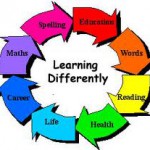
At the recent meeting of the New England Psychological Association in Worcester, Massachusetts, Marist College student Francesca Treglia presented “Orthorexia Nervosa: Should this Classification Be in Any Updates of DSM-5?” Treglia received research supervision from William Van Ornum, Ph.D., FAPA, professor of psychology at Marist as well as professional advisory-board member of The American Mental […]
By:
Evander Lomke

On our AMHF blogs we have tried to feature information about where the Venn diagrams of spirituality and counseling intersect. It seems peculiar that many religious people–from many religions–are reticent to link the spiritual resources and traditions of their faith with modern psychology and psychiatry. When people are depressed, psychotic, or anxious, there is a […]
By:
William Van Ornum, Ph.D.

For three days last week American Mental Health Foundation Books shared a booth with its distributor, Lantern, at the annual BookExpo America—which is held at the Jacob Javits Center on New York City’s West Side. (New York remains the publishing capital of North America, even with the multitude of changes the industry has seen.) The […]
By:
William Van Ornum, Ph.D.

Newly minted pastor Ed Stetzer, writing in CNN.beliefnet, writes of his dealings with a man in his congregation. This person would often disappear for days at a time, and later Stetzer would hear that the fellow had spent hours praying the psalms. Later the man killed himself, leading Stetzer to reflect of aproaches churches could […]
By:
William Van Ornum, Ph.D.

Here are some worthwhile books that can be ordered from the American Counseling Association (ANA): 1. Hays, D. G. (2013). Assessment in Counseling: A Guide to the Use of Psychological Assessment Procedures. Fifth Edition. This is a bestselling text, and the latest version includes updates and changes in assessment procedures. Test selection, interpretation of findings, […]
By:
William Van Ornum, Ph.D.

Most of us, unless we have the personalities of saintliness, find ourselves in an irritable mood once in a while. Parents may be particularly prone to these episodes. One hopes that they pass without even a cranky word; although it’s difficult to stifle one’s facial expression. Justin Meyer, writing in the Washington Post, brings refreshing […]
By:
William Van Ornum, Ph.D.

Once known as Multiple Personality Disorder (MPD), Dissociative Identity Disorder (DID) is the subject of film number eighteen of twenty-one in the AMHF series on psychiatry in Hollywood. The Three Faces of Eve covers a most controversial disorder—often outright debunked as the current (as of this writing) DSM-4 had made significant changes to the diagnosis. […]
By:
Evander Lomke

As Edward R. Murrow said, there are two sides to every story. Our previous probing into an increase and acceleration in funding for research into the brain waxed positively. A different viewpoint—now taken by major pharmaceutical industries—suggests that their interest in brain research is waning. Reuters reports the following: “Many pharmaceutical companies harbor deep doubts […]
By:
William Van Ornum, Ph.D.

President Barack Obama made headlines with his proposal to encourage American scientists to work toward understanding the great mysteries of the brain. Done as a massive project, this could rival past collective enterprises such as Getting a Man to the Moon; when President Kennedy suggested this, it took everyone’s breath away. It looked unattainable in […]
By:
William Van Ornum, Ph.D.

Several weeks ago Evander, as part of the series of films on mental health, posted a review of Fear Strikes Out. This unique story–coming out mid-point in outfielder Jimmy Piersall’s career—highlights Piersall’s emotional problems and strange behaviors: talking to Babe Ruth’s statue in the Yankee Stadium outfield, squirting home plate with a water pistol so […]
By:
William Van Ornum, Ph.D.

Consumers of mental-health services may not realize the extensive system of codes that go into insurance billing and medical records, both for mental-health services and other medical services. For mental health, every person who receives insurance reimbursement receives a diagnostic code from the most current Diagnostic and Statistical Manual of the American Psychiatric Association, as […]
By:
William Van Ornum, Ph.D.
It seems we are reminded every day about posttraumatic stress disorder (PTSD). It reveals itself in soldier suicides, which are occurring in a way that is more than we can bear. Shootings continue. In one city (Chicago), one mother has been so badly traumatized: She has lost four children over the years to street violence. […]
By:
William Van Ornum, Ph.D.

This month governors and the President are reflecting on what is going on in their respective territories. I thought this would be a good time to look at the state of the state of mental health and to offer my own reflections. DSM V Will Be Issued This year will inaugurate the new DSM V. […]
By:
William Van Ornum, Ph.D.

Since the Supplement to the U.S. Surgeon General’s Report Mental Health: Culture, Race, and Ethnicity—A Supplement to Mental Health: A Report of the Surgeon General, several events have occurred. These, say Lonnie R. Snowden, have established a national commitment to understanding African American-White American treatment disparities, their consequences, and opportunities for their reduction. Snowden’s article, […]
By:
William Van Ornum, Ph.D.

Public Law 94-142, passed by the Congress in 1976, and following legislation including Individual Education Disabilities Act (IDEA), defined different handicapping conditions for which a child could receive additional support (and therefore additional funding) in the public school system. A continuum of extra supports was initiated. This could range from being in a smaller class […]
By:
William Van Ornum, Ph.D.

Some occupations appear to put persons employed in them at risk for eating disorders. Flight attendants, dancers, actors—persons in these lines of work must maintain unforgiving standards of weight and general appearance in order to ply their trade. As such, they may employ tactics of severe calories-restriction or eating, and then throwing up. (Binging-and-purging as […]
By:
William Van Ornum, Ph.D.
The American Psychological Association has announced, in the January 2012 issue of American Psychologist, “Guidelines for Assessment of and Intervention With Persons of Disabilities.” This document lists twenty-two practice-guidelines for psychologists who work with persons displaying disabilities of various kinds. The task force for this report was chaired by Kurt F. Geisinger of the University […]
By:
William Van Ornum, Ph.D.
Elaine Aron pioneered new ground over a decade ago when she wrote the trade book The Highly Sensitive Person; this was followed up by a workbook, a book on parenting children who are highly sensitive, and even a primer for therapists. Highly Sensitive Persons (HSP), in her view (which incorporates findings from important developmental psychologists […]
By:
William Van Ornum, Ph.D.

In the recent yearly “Reports of the Association” issue of the American Psychologist (December 2011), the American Psychological Association announced “Practice Guidelines Regarding Psychologists’ Involvement in Pharmacological Issues.” This report notes several factors that will make psychologists more involved in medication-management issues. One survey noted that the number of Americans using antidepressants increased from 6.7 […]
By:
William Van Ornum, Ph.D.
Alcohol, cocaine, hallucinogens, marijuana, and opiates have had a varied and ambiguous legal and political history prior to the 21st century, and these substances will continue to need study, examination, policy, and law-making into the 21st century and beyond. Dwight Vick and Elizabeth Rhoades have written Drugs and Alcohol in the 21st Century: Theory, Behavior, […]
By:
William Van Ornum, Ph.D.

What are mental bears? A person who is asked NOT to think aloud about a white bear will more often than not mention this same white bear: at least once a minute. So “white bears” have come to mean all sorts of unwanted thoughts that cause annoyance to even extreme frustration to those who experience […]
By:
William Van Ornum, Ph.D.
For the past several months, the New York Times has been running a series of articles on people who experience severe psychiatric illness; and who, by dint of their own motivation, creativity, and resilience, are able to lead productive lives despite the ongoing burden. On November 27, 2011, the front-cover story features Mr. Milt Greek, […]
By:
William Van Ornum, Ph.D.
From the 14th edition of Abnormal Psychology by James N. Butcher, Susan Mineka, and Jill M. Hooley (Boston: Allyn and Bacon): “The concept of mental disorder, as we have seen, suffers from the lack of a truly objective means of what is disordered and what is not. It is also in the financial interests of […]
By:
William Van Ornum, Ph.D.
I wanted to continue the discussion points Evander Lomke recently raised (following an article published by University of Toronto) regarding what may be a plethora of new categories of pathology in the upcoming DSM V. It would appear that the psychiatric profession indeed is creating labels of “sickness” for many of the woes of everyday […]
By:
William Van Ornum, Ph.D.
The DSM was first issued in 1952, during that liberating period that saw, for example, Kinsey’s reports on sexual behavior. The DSM in its various editions guides treatment decisions throughout North America and other continents. The original DSM listed 106 disorders. This was pretty much carried over to the 1968 revision. However, the DSM III […]
By:
Evander Lomke

























 Host Companion
Host Companion